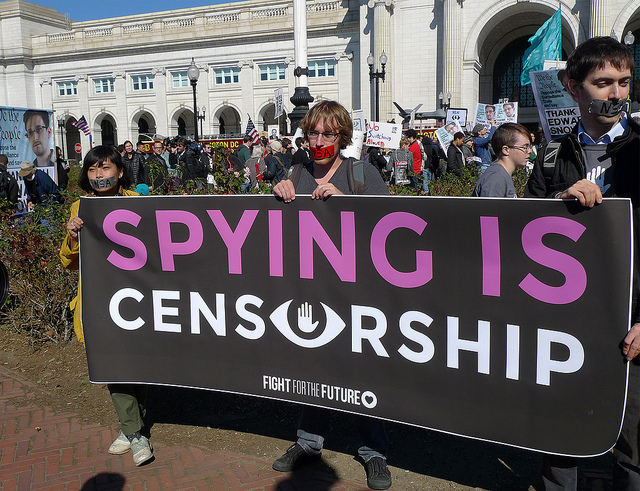
Back in the solidarity movements of the 1980s, activists were encouraged to apply for our FBI files under the Freedom of Information Act.
Nobody expected the FBI to tell the truth about what it had. It was intended as a protest of the FBI’s spying on activists.
I applied. Eventually, I got back a letter from the FBI, saying: “We have no records responsive to your request.” Everybody said, that doesn’t mean anything, the FBI lies.
Some time after that, there was a push to get people to join the class action lawsuit against the ADL, which was charged with spying on peace activists and illegally using police information to do so. So I applied to join the class. I didn’t expect anything to happen. But then much later I got a letter in the mail from a court somewhere, saying that pursuant to the settlement of the lawsuit, the ADL had agreed to purge information about me from its records. One of the records was a photograph of the license plate on my car. That’s odd, I thought.
Given how government spying on activists was something that we used to be very concerned about, imagine how startled I was to read in the Guardian that the FBI probably has my email correspondence with WikiLeaks. Thanks to Edward Snowden we know that the NSA has been trying to vacuum up everything. But it’s a different thing to read that the FBI has your stuff specifically.
Google took almost three years to disclose to WikiLeaks it had handed over emails belonging to three of its staffers to the U.S. government under a secret search warrant, the Guardian reported. The subjects of the warrants were WikiLeaks investigations editor Sarah Harrison, WikiLeaks spokesperson Kristinn Hrafnsson, and WikiLeaks senior editor Joseph Farrell.
The court orders cast a data net so wide as to ensnare virtually all digital communications originating from or sent to the three, the Guardian said. Google was told to hand over the contents of all their emails, including those sent and received.
I have communicated by email with all three of the WikiLeaks staffers named in the Guardian article over a period of years using my Gmail account. Therefore, based on the Guardian report, I think that Google may have supplied the FBI with my email correspondence with the three WikiLeaks staffers.
Alexander Abdo of the American Civil Liberties Union said the warrants were “shockingly broad” in their catch-all wording. “This is basically ‘Hand over anything you’ve got on this person’,” he said. “That’s troubling as it’s hard to distinguish what WikiLeaks did in its disclosures from what major newspapers do every single day in speaking to government officials and publishing still-secret information.”
I asked some lawyers if I have any meaningful basis for suit, action, or complaint in any venue. Probably not, they said. You’d be better off to launch a public campaign to raise awareness.
OK, I said. So here’s my public campaign to raise awareness. I’m publicly demanding that the FBI return my email and destroy all copies in its possession. You can support my campaign here.
Press freedom is under attack
As Trump cracks down on political speech, independent media is increasingly necessary.
Truthout produces reporting you won’t see in the mainstream: journalism from the frontlines of global conflict, interviews with grassroots movement leaders, high-quality legal analysis and more.
Our work is possible thanks to reader support. Help Truthout catalyze change and social justice — make a tax-deductible monthly or one-time donation today.